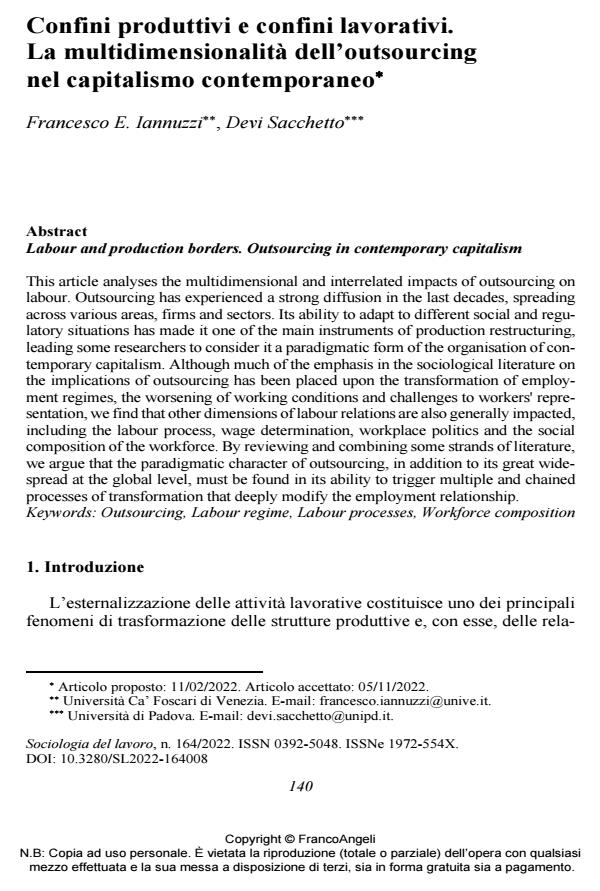Labour and production borders. Outsourcing in contemporary capitalism
Journal title SOCIOLOGIA DEL LAVORO
Author/s Francesco E. Iannuzzi, Devi Sacchetto
Publishing Year 2022 Issue 2022/164
Language Italian Pages 22 P. 140-161 File size 252 KB
DOI 10.3280/SL2022-164008
DOI is like a bar code for intellectual property: to have more infomation
click here
Below, you can see the article first page
If you want to buy this article in PDF format, you can do it, following the instructions to buy download credits

FrancoAngeli is member of Publishers International Linking Association, Inc (PILA), a not-for-profit association which run the CrossRef service enabling links to and from online scholarly content.
This article analyses the multidimensional and interrelated impacts of outsourcing on labour. Outsourcing has experienced a strong diffusion in the last decades, spreading across various areas, firms and sectors. Its ability to adapt to different social and regu- latory situations has made it one of the main instruments of production restructuring, leading some researchers to consider it a paradigmatic form of the organisation of con- temporary capitalism. Although much of the emphasis in the sociological literature on the implications of outsourcing has been placed upon the transformation of employ- ment regimes, the worsening of working conditions and challenges to workers' repre- sentation, we find that other dimensions of labour relations are also generally impacted, including the labour process, wage determination, workplace politics and the social composition of the workforce. By reviewing and combining some strands of literature, we argue that the paradigmatic character of outsourcing, in addition to its great wide- spread at the global level, must be found in its ability to trigger multiple and chained processes of transformation that deeply modify the employment relationship.
Keywords: Outsourcing, Labour regime, Labour processes, Workforce composition
Francesco E. Iannuzzi, Devi Sacchetto, Confini produttivi e confini lavorativi. La multidimensionalità dell’outsourcing nel capitalismo contemporaneo in "SOCIOLOGIA DEL LAVORO " 164/2022, pp 140-161, DOI: 10.3280/SL2022-164008